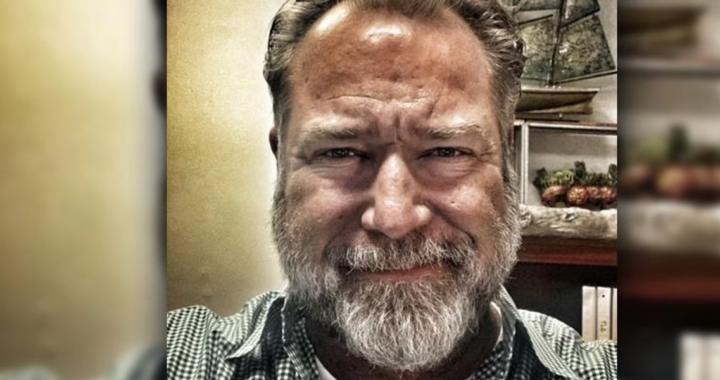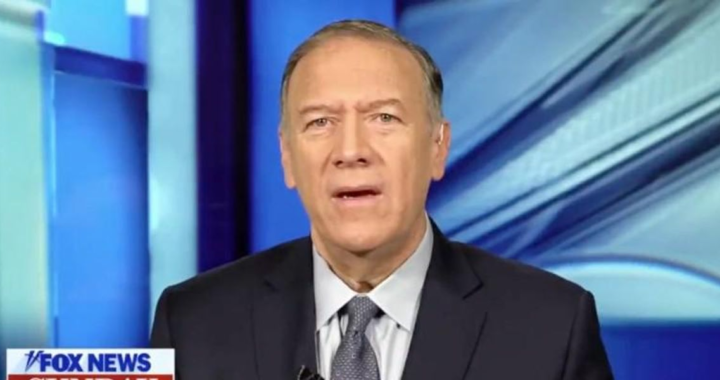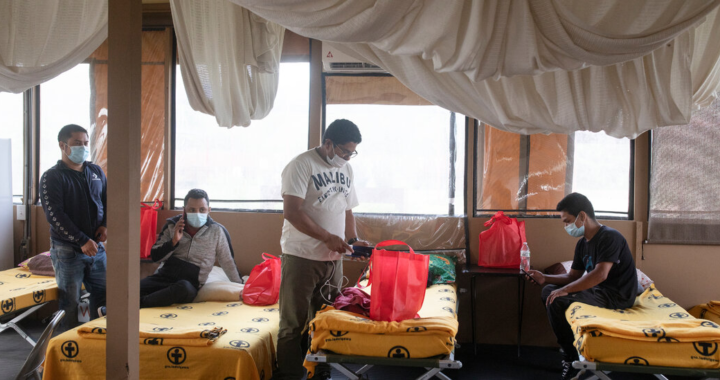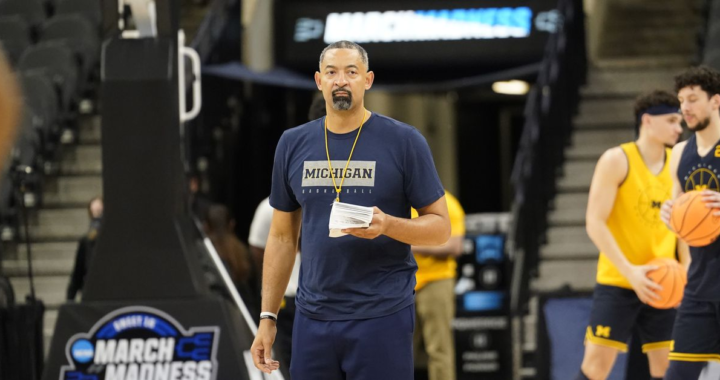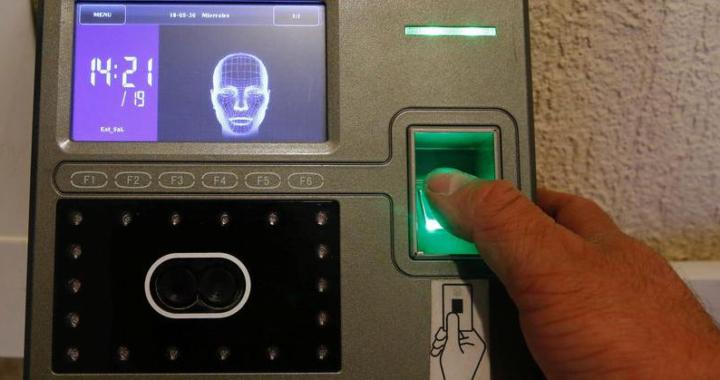Proud Boys are invading New Hampshire school board meetings and vowing to defeat Marxism: report
4 min read
On and on go the accusations, for about three minutes, though the man assures: “I’m not a racist, my gardener is Arab. I just lost hope. Hard to imagine the day we live in harmony.”
He claims there is a cultural abyss between Jews and Arabs in Israel. “We share this country, but the hate never stops,” he concludes.
The young man in the white T-shirt who up to this moment has listened with a stoic expression has a lot to say as well.
“Let’s talk straight,” he counters. “You Jews forget what it’s like to be a minority.”
He talks about the Palestinians expelled from their villages, about how it feels to be a second-class citizen, the racing heartbeat whenever he has to approach a checkpoint.
“I don’t support terror, I’m against violence – but 70 years of occupation, of course there will be resistance,” he says. “The country sees me as a terrorist, not as a human being.”
“We both have no other country and this is where the change begins,” he concludes.
Reproaches, prejudice, mutual dislike and suspicion – in their rap song “Let’s Talk Straight,” Uriya Rosenman and Sameh Zakout have wrapped it all up in not quite seven minutes.
When first published in May 2021, the song went viral in Israel. It hit a nerve, particularly at that time: The latest missile attacks between the Gaza Strip and Israel had just ended. But “Let’s Talk Straight” has a much longer history, Rosenman says to dpa in Tel Aviv.
Years ago, the educator and artist living in the coastal Israeli city had heard Joyner Lucas’ song “I’m Not a Racist.”
“It was like a punch in the stomach,” Rosenman says.
He came up with a plan to write a similar song about Israel, given a society deeply divided between the political left and right, religious and secular people, Ashkenazi and Sephardic Jews.
“But the Jewish-Arabic rift is the most prominent,” he says.
“I grew up in a very Zionist family, my grandfather was commanding the paratroopers. My family educated me to love my people and to defend Israel,” Rosenman says. And he admits that until he started working on the song, “I never really knew the Palestinian side of the story.”
Rosenman talked to many people to learn more about the extreme voices and perceptions on both sides of the Jewish-Arab divide. Two years later, the lyrics of “Let’s Talk Straight” were ready.
“I realized two things – this could be groundbreaking for the two communities given the lack of political correctness. And it is not authentic until I bring in an Arab part,” he says.
A friend introduced him to Sameh Zakout, an actor and hip-hop artist originating from Ramle.
“It took us two, three months to build up trust,” Zakout recalls.
He had some “bad history with this so-called co-existing peace process” and he “was afraid I might be used.” In the end, there was not only trust, but a real friendship, they both say.
“Honestly, this is the best project I ever made,” Zakout says.
As they discussed the song, again and again, the lyrics about the Arab perspective changed due to Zakout’s input. “It was difficult for me to even call it Palestinian side, not Arab,” Rosenman admits.
About 20 per cent of the 9.4 million people living in Israel are considered Arab Israelis, whereas in the official use of language, Palestinians are the inhabitants of the Palestinian Territories, the West Bank and the Gaza Strip.
“The main idea was to awake people to the relations of Arabs and Jews,” Rosenman says about the song that got almost 140,000 hits on YouTube alone.
He admits it was difficult to use the words in the video, especially as the two men became such close friends. “But the one talking in the video is not me,” he assures. And yet: “Every time I listen to the song next to other people I cringe at the harsh language.”
“It was hard at first,” Zakout agrees about hurling derogatory remarks at each other while recording the song. “But when we came to the set, we were really set, literally. In our minds, we were not friends anymore.” He pauses. “It is hard to hate someone into his face.”
Still, “Let’s Talk Straight” is not about hatred. “It’s about building a different future,” the artists say.
They hope their song is only the beginning of a grass-roots movement of people starting to talk and listen to each other. Most responses are positive.
“I am speechless about this support from Jews, from Arabs,” Rosenman says. “We don’t really have a solution but to become better friends, to acknowledge each other’s narratives and history,” Zakout adds.
“Independence Day and Naqba are two perspectives of the same event. It’s like looking at a number and one says it’s a six and the other says it’s a nine.”
At the same time, Arabs in Israel know far more about the Jews than vice-versa, he says. “A minority always knows more about the majority than the other way round, everywhere in the world.”
They try to share both perspectives, giving lectures to schools both in Jewish and Arab communities. “Speaking to kids is awesome,” Rosenman says. “We try to insert a little bit of doubt and open mindedness.”
At the end of the music video, both men sit silent across each other at a table, sharing pita bread and a bowl of hummus.
In real life, Rosenman is taking steps to overcome his speechlessness and the imbalance in the relationship: He is now learning Arabic.


